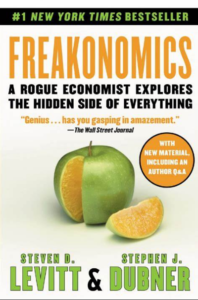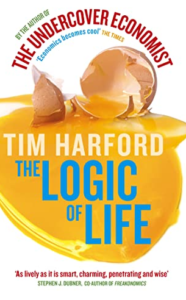In 221 BC, the Qin dynasty ended the Warring States period of China and achieved true unification of the Chinese mainland. A bit earlier, towards the end of the 260s BC, Alexander of Macedonia built a vast empire encompassing Greece, Egypt, and the Middle East. If the armies of Qin Shi Huang and Alexander had faced each other, who would have won?
The Qin dynasty disappeared into history after losing consecutively to Liu Bang of the Han dynasty and Xiang Yu of the Chu state 30 years later. Alexander’s empire divided into four nations after his death in 323 BC. The Chinese mainland was reunited under Liu Bang of the Han dynasty, and in 156 BC, the seventh emperor, Emperor Wu of Han, ascended to the throne. He conquered neighboring countries and expelled nomadic tribes, building a powerful empire. Around this time, Rome was gradually becoming stronger in Europe. Around 50 BC, Caesar, known as Julius Caesar, conquered Gaul and effectively unified Europe. What would have happened if the armies of Emperor Wu of Han and Caesar had gone to war?

In 2015, a movie called “Dragon Blade” was released, featuring scenes where Roman troops confront a Chinese army guarding the Silk Road. The film exaggerates the simple historical fact that the Han dynasty and Rome had contact along the Silk Road, making it difficult to estimate the strengths of both sides. Nonetheless, if one had to bet, they might have to favor the East’s victory. This is because, based on the development of science, wealth levels, and population size at the time, China could be considered superior. However, such an evaluation is futile because the truth is that the two would not have gone to war. There’s almost no reason for two forces competing in entirely different tournaments to go to war.
People listen to the stories of successful individuals and seek the methods of success from them. The same goes for successful companies. In fact, it wouldn’t be an exaggeration to say that the study of business management generalizes the success stories of victorious companies. However, reality differs. Even with similar levels of ability and effort, some people win while others fail.
Not everyone is given the same form of opportunity. To truly distinguish winners from losers, opportunities like those available to all teams in a professional baseball or soccer league to compete multiple times must be provided. However, life doesn’t work that way.
The people we compete with are usually those around us. While sometimes it’s a choice, most often, it’s simply where we find ourselves placed. What’s more unfair is that multiple chances are not given. If everyone who wants to start a business was given ten opportunities, those who win more than five times should be called successful. But who gives such chances? Losers in the first business or initial competitions are often deprived of the opportunity to become winners. After failing in the first business, it becomes difficult to attempt a new challenge. Conversely, those who luckily succeed in their first business are distinctively identified as more capable than the losers and are given opportunities to take on bigger and greater challenges. The outcome of one competition affects subsequent competitions.
Indeed, the world is not a full league where one must compete against everything. Even in one-on-one encounters, the form of competition we face is not a league but a tournament where only a few chances are given. It’s more akin to a tennis tournament than to a professional soccer or baseball league. It’s not about competing against a multitude of people, nor is it about having numerous attempts to compete.
Table of Contents
Tournament Competition
The rule of the tournament is simple: one must first defeat their opponent to qualify for the next competition. Tournament participants usually have to start from the bottom. If they receive recognition or assistance early in the competition, they can start from a higher position in the tournament with a seed. Having a seed means starting under better conditions. Although it may be an uncomfortable truth, the term “seed” literally means selecting the seeds. It implies that winners are different.
In tournament matches, strong players or team players are not pitted against each other from the start to prevent immediate confrontations, thanks to previous victories giving them benefits. In reality, this is akin to being born the child of a wealthy family or growing up in a developed country. Such tournament competition can be found everywhere. Tournament participants start from the bottom and climb to the highest position. In this process, losers are eliminated. While some may start over, they might have to leave the tournament and find another.
Most organizations, industries, or markets adopt this tournament as a method of competition. Consider the pyramid shape of organizations. The higher one climbs, the more intense the competition becomes. The number of positions decreases as one ascends to higher ranks. The initial competition is determined not by a law of victory but by a law of elimination. The law of victory selects the winners, whereas the law of elimination filters out the losers. While not as brutal as the law of the jungle, the outcomes for winners and losers in a tournament differ significantly.
The authors of “Freakonomics,” Steven Levitt and Stephen Dubner, emphasize that criminal organizations also adopt this tournament-style competition. American criminal organizations mainly engage in the drug trade, a highly risky business. In many cases, it might even be life-threatening. Since risky businesses tend to yield high profits, one might assume that all participants in this tournament are living well.

However, most members of the organization are still living in their mother’s house. The reason is that the income of lower-ranking members is not as high as we might think. The structure of a drug trafficking organization is almost identical to that of McDonald’s, and drug dealers can be compared to employees working at hundreds of McDonald’s outlets. Aside from the associated risks, gangs are no different from any regular company.
So why do some people dive into such a job that is not only poorly paid but also dangerous? The answer lies in the tournament competition. In the initial stages of promotion, it is relatively easy to advance because there are far more winners than losers. People live on hope, banking on future income or circumstances despite the lack of immediate rewards. Gang members risk their lives in the hope of climbing to the boss level. Once reaching the mid-boss level, not only is a significant income guaranteed, but they can also command many underlings.
Jobs that require high skills or special talents but offer low initial income demand a more steeply pyramidal form of tournament competition. This applies to actors, singers, and chefs. Highly skilled individuals willingly work as kitchen assistants because becoming a head chef later guarantees a significant income.
Consider a typical company. Usually, promotions are determined by comparing who performs better among those doing the same job. Since there are several more opportunities to advance to a higher position for those at the lowest rank, employees can be motivated to perform highly in the tournament despite the lack of significant monetary rewards for their performance. However, as one climbs to higher positions, the opportunities for further promotion decrease.
Relying solely on promotion as an incentive for employee performance is impractical. Therefore, companies offer substantial salary increases as incentives for each promotion to a higher position. Ed Lazear, who advocated this tournament theory, emphasizes, “A CEO’s salary is less about motivating the CEO to work hard and more about motivating the vice presidents to do so.” By this logic, even if a CEO who earns an enormous salary spends all day with his feet up on the desk doing nothing, he fulfills his role if he motivates the numerous subordinates dreaming of becoming CEO to work hard.
This suggests that the income earned by successful individuals does not necessarily reflect their contributions. Tim Harford in “The Logic of Life” questions this by saying that investors in Disney made much less profit over 13 years than they would have from investing in U.S. treasury bonds, hence Disney’s executives shouldn’t be paid so much. However, the reality is different. There are reports that the wage gap between executives and regular employees in Korea’s major companies is more than 20 times. Comparing the compensation of directors in 28 companies surveyed with the wages of all wage workers in Korea, the gap reaches 38.6 times, and compared to the wage level of non-regular workers, it’s as much as 63.7 times. The gap would be even wider if the compensation levels of CEOs and ordinary employees were analyzed separately.

The International Labour Organization (ILO) expressed concern about income inequality in its “2008 World of Work Report,” stating, “From 2003 to 2007, the income of top executives in the United States increased by 45%, while middle managers’ income only increased by 15%, and ordinary workers’ wages rose by just 3%.” Management scholar Peter Ferdinand Drucker advised in “The Next Society” that if CEOs do not want to breed resentment and demoralization among their employees, the wage gap between managers and employees should not exceed 20 to 1. He noted that the significant inequality spawned by the Industrial Revolution in the early 1930s generated social despair, and today’s phenomenon has far exceeded the warning level of leadership collapse suggested by Drucker.
The high salaries of executives and CEOs are justified by their significant contributions to a company’s performance. However, their wage increases are occurring much faster than the company’s performance improvements due to the adoption of tournament-style competition. This competition method provides executives with enormous salaries disproportionate to the income they generate for the organization. The CEO must contribute more to the company than his salary. Yet, today’s reality of competition does not reflect this. It’s not about right or wrong; it’s the reality we face.
In a world dominated by tournament competition, the initial victory is crucial as it significantly determines the outcome. Advancing beyond the lower stages of a tournament allows competitors to compete with many advantages compared to other dropouts. Even though those who have climbed higher may fail due to arrogance or complacency, they are always in a position to compete advantageously, akin to receiving a seed in a tennis tournament. It’s not that life is unfair; the competition itself creates inequality. Malcolm Gladwell, in “Outliers,” refers to the Matthew Effect, citing a verse from the Bible, which, although slightly different in meaning, states in Matthew 25:29, “For whoever has will be given more, and they will have an abundance. Whoever does not have, even what they have will be taken from them.”
Tournament competition teaches us two crucial lessons about competition. First, where we start and grow can make a significant difference, meaning the tournament in which we compete will greatly influence our future success. Secondly, the initial success, whether by chance or not, will gradually create even larger differences.
Bullying Game
The TV program “Weakest Link,” which started in the UK, gained instant popularity upon its 2000 premiere and inspired similar programs in the United States, Australia, and elsewhere. It is set to return in April 2024 on NBC with new episodes hosted by Jane Lynch.

The original quiz program begins with eight contestants. The host asks each contestant questions in turn. Correct answers contribute money to the team’s pot. After each of the eight has been asked a question, one round is completed. Correct answers increase the total prize, while incorrect answers do not. There’s no individual prize money, and incorrect answers do not result in elimination.
Then, the eight publicly nominate one person for elimination. Contestants nominate the person they believe is the least helpful in solving problems, and the one with the most votes is eliminated. It’s a majority decision. The host may ask why they nominated that person. The host’s catchphrase, “You’re the weakest link. Goodbye!” became a popular saying in the UK. Through public voting in each round until two are left, the “weakest link” is chosen, and the final two compete in a head-to-head battle, with the winner taking all the money.
“You are the weakest link, goodbye” International / Worldwide
It’s essentially a tournament game. Everyone hopes to advance to the next stage by eliminating one person at a time, but inevitably, someone has to be eliminated. However, the law of elimination is not that simple. Logically, the most skilled person should remain for the benefit of the entire team. But the law of elimination is about relationships; it’s the person with the weakest connections to others who gets eliminated first.
The more questions the contestants answer correctly in a single episode, the higher the final prize for the winner. Therefore, those who fail to answer correctly during their turn inevitably face the displeasure of their fellow contestants. The host uses this to prompt contestants to reveal the name of the “weakest link” at certain intervals. In the early stages, those with less skill are more likely to be eliminated. But as the competition progresses, skilled individuals become competitors. The eliminated contestants up until the final three or four are those who failed to contribute to the pot. Then, paradoxically, the top contenders who answered the most questions correctly are voted out.
Early in the game, accumulating money is a priority for contestants. However, as the number of contestants decreases, they start thinking about the final head-to-head battle, preferring to face a weaker opponent to win. At this stage, the focus shifts from increasing the pot to securing the prize money for themselves.
When it comes down to the last 3-4 contestants, a situation unfolds where they opt to eliminate the most skilled individuals who might pose a significant challenge in the final battle for the prize, labeling them as the weakest link.
This illustrates that having weak connections with others often aligns with lacking ability, but being highly skilled or capable doesn’t necessarily equate to popularity. Indeed, competition is not solely about skill; the relationships one has with others play a crucial role in elimination. It’s clear that not everyone in the world is my opponent, nor is there a need to compete against everyone.


답글 남기기